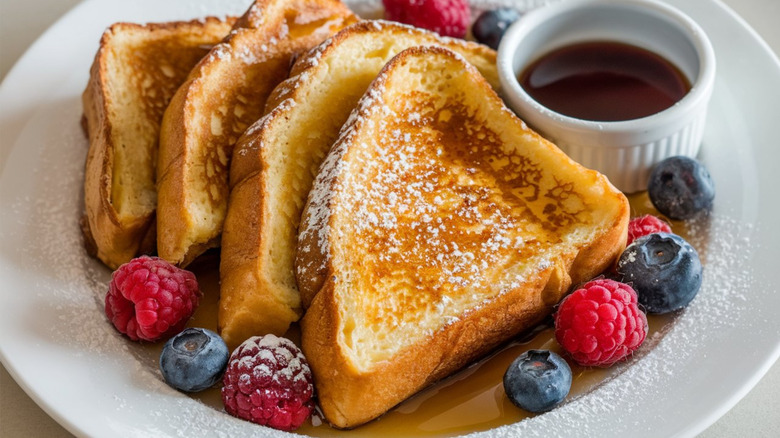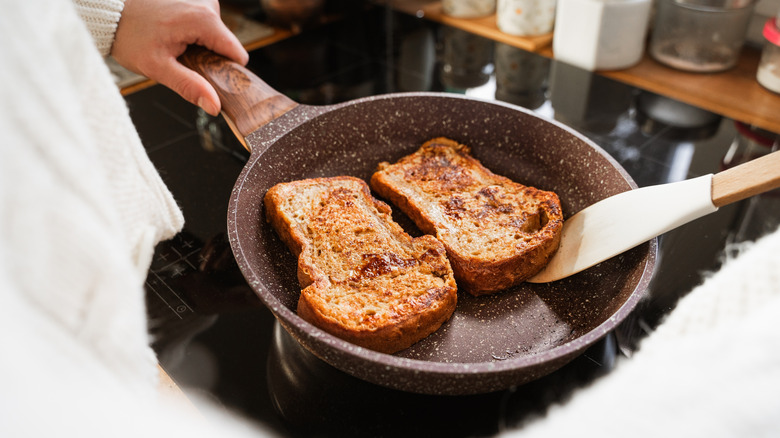French Toast Wasn't Actually Invented In France At All
Quick, easy, and delicious, French toast is one of those perfect foods that very few people dislike. The magic of this dish is in its simplicity, needing only eggs, milk, and bread. If you use good ingredients, you don't even have to slather it with syrup. It would seem as if we should all thank the French for another delicious and beloved dessert. Except, the French can't take credit for this dish, since it was actually ancient Romans who invented it — or at least, they have the oldest recipe we've been able to find.
Thought to be written in the 1st century C.E. but compiled in the 4th century, "Apicius" or "De re coquinaria" ("The Art of Cooking") is one of the oldest surviving recipe books. This culinary treasure was named after Marcus Gavius Apicius, a wealthy Roman who was known for his love of good food. Within its pages, you can find a recipe for "another sweet dish," which calls for soaking pieces of crustless white bread in milk and beaten eggs, frying it in oil, and covering it with honey. Sound familiar?
Of course, there's no way to know if the Romans got this recipe from one of the civilizations that they conquered and annexed to the empire. But we have not found evidence of it. As of now, our best guesses on the origins of this dish point to this recipe book that has miraculously survived for about 1,700 years.
How French toast got its name
If Romans did indeed invent this dish, how did the French end up getting the credit for it? The truth is that no one knows. There is evidence pointing to the recipe arriving in France and England, albeit under different names like "lost bread" or pain perdu. (This is still what the French call the dish because it was a way to avoid wasting stale bread.) Historical records also show that the Roman recipe was served in the court of King Henry V of England in the 15th century. The 17th century produced the earliest known mention of "French toast," found in the 1660 book, "The Accomplisht Cook." However, the recipe in this book does away with milk and eggs, instead dipping the bread in wine and serving it with orange juice and sugar — creating a centuries-old vegan French toast recipe.
No one really knows why the dish changed its name to claim ties to France, but one theory is that it was simply better marketing. After all, French food has enjoyed an impeccable reputation for centuries, and "French toast" certainly sounds more appealing than "lost bread." It's similar to how baked Alaska got its name because it recalled the coldness of exotic northern climes in the minds of its creators. Whatever French toast's origin story is, we're certainly glad someone invented this sweet dish that we'll probably continue to enjoy for another thousand years.

